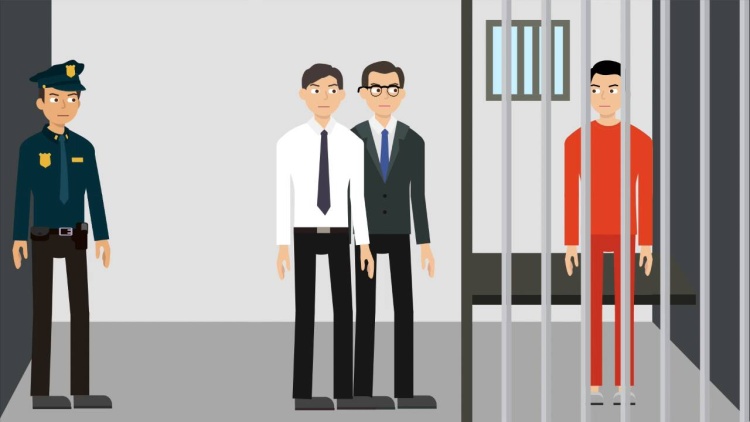Edwards v. Arizona
United States Supreme Court
451 U.S. 477 (1981)
- Written by Sarah Venti, JD
Facts
Edwards (defendant) was arrested for robbery, burglary, and first-degree murder. He was informed of his Miranda rights and agreed to answer the officers’ questions. After some questioning, during which Edwards made no incriminating statements, Edwards invoked his right to have a lawyer present. He was then taken to jail. The next day, two officers came to the jail to see Edwards. Edwards said he did not want to see the officers, but the prison guard said he had to talk to them. The officers read Edwards his Miranda rights, and Edwards agreed to answer their questions, this time incriminating himself. The trial court allowed Edwards’s statement to be admitted at trial, holding that the statement made at the prison was voluntary. Edwards was convicted. On appeal, the state supreme court held that Edwards had invoked his right to remain silent and his right to counsel the first time he was interrogated but that he had effectively waived both those rights when the police came to the jail and he voluntarily answered their questions. The United States Supreme Court granted certiorari.
Rule of Law
Issue
Holding and Reasoning (White, J.)
Concurrence (Powell, J.)
Concurrence (Burger, C.J.)
What to do next…
Here's why 905,000 law students have relied on our case briefs:
- Written by law professors and practitioners, not other law students. 47,100 briefs, keyed to 995 casebooks. Top-notch customer support.
- The right amount of information, includes the facts, issues, rule of law, holding and reasoning, and any concurrences and dissents.
- Access in your classes, works on your mobile and tablet. Massive library of related video lessons and high quality multiple-choice questions.
- Easy to use, uniform format for every case brief. Written in plain English, not in legalese. Our briefs summarize and simplify; they don’t just repeat the court’s language.





